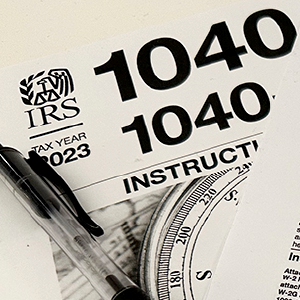FTC warns of fake shipping notification, invoice scams
| Published: 12-17-2023 4:57 PM |
The Federal Trade Commission is warning consumers to be aware of fake invoice and shipping message scams, which ramp up this time of year.
A news release from the FTC Thursday said that scammers send fake package shipment and delivery notifications and fake invoices to try to steal people’s personal information, not just at the holidays, but all year long.
Here’s how it works:
The scammer sends a bogus message by email or text saying that a delivery attempt was missed or send you an invoice for something you never bought. It gives you a link to click on or a number to call. Some of the scams say you need to update your shipping preferences. Some create a sense of urgency by saying if you don’t respond right away, the package will be returned to the sender. The invoice scam may cause you to worry that you’ll be charged hundreds for something you didn’t buy.
The link will have you enter personal financial information, as will the person on the other end of the phone number masquerading as customer service. If the link brings you to a website, it’s a fake one, even though it may look real. It will capture all the information you enter.
The link could also install harmful malware on your phone or computer that steals your information, including user names, passwords to your accounts, access to your social media accounts (which they may use to open fake accounts in your name), and more. The person on the phone may ask for account numbers, or even to share your screen.
The FTC recommends:
■If you get a message about an unexpected package delivery, an invoice for something you didn’t order, or anything else that tells you to click on a link or call a number, don’t.
Article continues after...
Yesterday's Most Read Articles
■If you think the message may be legitimate, contact the shipping company using a phone number or website that you know is real. Don’t use the information in the message.
■If you think it could be about something you recently ordered, go to the site where you bought the item and look up the shipping and delivery status there.
“No matter the time of year, it always pays to protect your personal information,” the FTC said.
The company offers resources to help consumers navigate scams and how to report scams.
To weed out spam text messages, visit the FTC how to recognize and report spam text fraud page.
These articles are being shared by partners in The Granite State News Collaborative. For more information visit collaborativenh.org.


 Adam Montgomery sentenced to minimum 56 years on murder charges in young daughter’s death
Adam Montgomery sentenced to minimum 56 years on murder charges in young daughter’s death Neighboring landowner objection stalls Steeplegate redevelopment approval
Neighboring landowner objection stalls Steeplegate redevelopment approval Following budget cut, Pembroke revisits future of elementary school re-build
Following budget cut, Pembroke revisits future of elementary school re-build Granite Geek: Free government software for taxes – what could go wrong? (Not much, as it turns out)
Granite Geek: Free government software for taxes – what could go wrong? (Not much, as it turns out)
